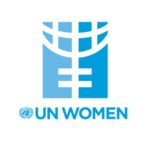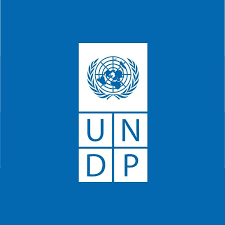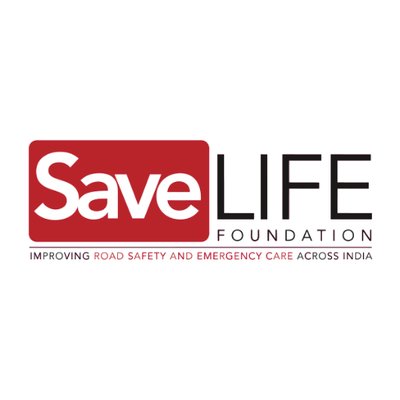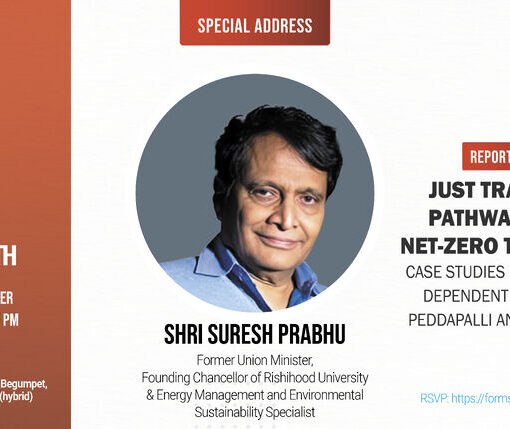
Website UN Women
Background
UN Women, grounded in the vision of equality enshrined in the Charter of the United Nations, works for the elimination of discrimination against women and girls; the empowerment of women; and the achievement of equality between women and men as partners and beneficiaries of development, human rights, humanitarian action and peace and security.
Placing women’s rights at the centre of all its efforts, the UN Women leads and coordinates United Nations system efforts to ensure that commitments on gender equality and gender mainstreaming translate into action throughout the world. It provides strong and coherent leadership in support of Member States’ priorities and efforts, building effective partnerships with civil society and other relevant actors.
In India UN Women works on the priority themes of Gender Responsive Governance, Women’s Economic Empowerment, Ending Violence Against Women and Girls and Intergovernmental coordination.
The WeEmpowerAsia (WEA) programme is a collaborative effort between the Regional Office of UN Women for Asia and the Pacific (ROAP) and the European Union (EU), which is funding the action under its Partnership Instrument.
The overall objective of the WEA programme is that more women lead, participate, and have access to enhanced business opportunities and leadership within the private sector to advance sustainable and inclusive growth.
Under the programme, UN Women works extensively with the private sector to promote gender equality in the workplace, marketplace, and community through adoption and implementation of Women’s Empowerment Principles (WEPS). Principle 3 specifically talks about employees health, well begin and safety and focuses on establishing internal policies and procedures preventing all forms of violence and sexual harassment at work including in the supply chains.
Ending Violence against Women
At the country level, UN Women supports Governments in adopting and enacting legal reforms aligned with international standards for ending violence against women and girls. UN Women supports expanding access to quality multi-sectoral responses for survivors covering safety, shelter, health, justice and other essential services. UN Women works with Governments to develop dedicated national action plans to prevent and address violence against women, strengthening coordination among diverse actors required for sustained and meaningful action. UN Women also works with the private sector to improve safety for women at work and at home.
Duties and Responsibilities
The objective of the assignment is to develop the design a three-year project on ending violence against women and girls (VAWG) in garment/textile supply chains as well as in public and private spaces in Tamil Nadu.
The project aims to forge and strengthen multi-sectoral partnerships in Tamil Nadu (Textile and Apparel) to effectively respond to sexual harassment of women and girls at the workplace and other forms of gender-based violence, through targeted interventions to prevent and respond to VAWG and enhance women workers’ health, wellness, and safety in the Textile and Apparel sector.
Important synergies will be made with other initiatives to improve the safety and wellbeing of women and girls and as part of ensuring the sustainability of textile and garment value chains in India.
UN Women already has an MOU with the Government of Tamil Nadu to support government efforts to end violence and provide support to survivors.
Under the direct supervision of Programme Manager-WeEmpowerAsia Programme and in close consultation with the EVAW Specialist, the technical consultant will be responsible for the following:
Conduct a thorough desk review of literature on ending violence against women and girls (VAWG) in garment/textile supply chains as well as in public and private spaces:
- Design a learning mission
- Map key partners for the programme and create a database that includes brands, multi stakeholders and industry platforms and associations, NGOs, Government , suppliers, manufactures, mills etc.
- Develop questionnaires for the learning mission tailored for primary research with mapped partners
- Identify key best practices on prevention and response to prevent sexual harassment at the workplace that can be built into the programme design
Undertake a Learning Mission to identify and meet with key partners in select locations to develop the foundational framework for collaboration including identifying entry points for programming through primary research. Primary research should include but not limit to:
- FDGs with 2 women’s groups with contracts with Tier I & II suppliers
- FDGs with 2 women groups without contracts with Tier I & II suppliers
- FDGs with 2 women’s groups with Tier III suppliers
- One-on-one interviews with women leaders working in the areas of ending violence against women
- One-on-one interviews with 6 NGOs working in Tamil Nadu in the areas of ending violence against women and girls
- One-on-one interviews with 6 key Government departments at the state and key district levels (to be identified based on desk review)
- One-on-one interviews with 6 interviews with mill owners
- One-on-one interviews with 6 interviews with apparel factory owners
- One-on-one interviews with 6 interviews with trade union representatives
- One- on – one interviews with 3 multi stakeholder partners initiatives
- One-on-one with 2 lawyers handling sexual harassment cases
- Identify and support building a coalition of selected partners, including but not limited to preliminary discussions with management of brands/suppliers/manufacturers/industry bodies/government partners, including through convening at least two expert group meetings.
- Draft a ToR for the Women Safety and Empowerment Platform (WSEP)/coalition incorporating UNW’s global safety framework for rural spaces and convene the first meeting with relevant stakeholders.
- Design and conduct one programme design workshop (presentation of findings, and programme design/validation) to structure the intervention strategiesProduce a short synthesis report on the programme design workshop.
- Identify the principal manufacturer/supplier (from among tiers 1, 2 & 3) for implementation of the catalytic programme on prevention and response to sexual harassment at the workplace and in public spaces (including online spaces)
- Based on the desk review and learning mission develop a comprehensive ToR for a baseline study.
Expected Deliverables with Timelines:
- Partnership building and learning missions undertaken and detailed mission report submitted with desk based and primary research and analysis to inform the programme design including geographic location of the project in Tamil Nadu. – The deadline for the same is 5 Oct 2022 and 30% payment will be done.
- Two expert group meetings convened around consensus building for creating the Women Safety and Empowerment Platform/coalition with stakeholders including but not limited to brands/suppliers/manufacturers/industry bodies/ trade unions/government partners and report submitted – The deadline for the same 15th October 2022 and 20% payment will be done.
- Terms of Reference for a Sexual Harassment Assessment and Gender-based Violence in supply chains baseline study (to be commissioned by UN Women) developed. The scope of the baseline includes but not limited to review of the identified manufacturers/suppliers’ policies on i) sexual harassment at the workplace; ii) strengthening women’s leadership and addressing VAWG and the capacity gaps within manufacturers/suppliers; iii) procurement policies of the manufacturers and the brands iv) develop a practical guide on prevention and response roll-out based on evidenced-based prevention and response work.- The deadline for the same is 10th October 2022 and 20% payment will be made.
- Terms of Reference for the Women Safety and Empowerment Platform (WSEP)/ coalition developed and one meeting of the relevant stakeholder’s part of the platform/coalition convened.
The TOR should include but not limited to:
- vision, mission, and framework for platform/coalition
- eligibility and membership criteria, structure, and coordination mechanism of the coalition with membership obligations and benefits. The WSEP/coalition is envisioned to be consist of a select group of brands/manufacturers/suppliers/individual proprietors industry associations, government, and other partners. The platform will take forward the political will of the brands and manufacturers and associations towards concrete actions on the ground to promote women’s safety and empowerment. The platform will be co-convened with the relevant government body in India and will have a rotating chair amongst its members. The platform will not have more than 12 members who are key decision and influencers in the textile and apparel sector.
- recommend a programme design for WESP/coalition work with a log frame and programme entry points with timelines
- design a layered funding co-contribution mechanism for private sector partners to fund this initiative through UN Women
- develop a monitoring framework to measures platform’s/coalitions’ progress as well as sexual harassment and gender-based violence in supply chains
This process should be completed by 15th October and 20% the payment will be released.
- Conduct one programme design workshop and including with relevant stakeholder part of the platform/coalition convened. (Presentation of findings, and programme design/validation) organized to structure the intervention strategies. A short synthesis report on the programme design workshop produced and principal manufacturer/supplier (from among tiers 1, 2 & 3) for implementation of the catalytic programme on prevention and response to sexual harassment at the workplace and in public spaces (including online spaces) identified. – The deadline for the same is 5th November 2022 and 10% payment will be made.
Competencies
Corporate Competencies:
- Demonstrates commitment to UN Women’s mission, vision and values
- Displays cultural, gender, religion, race, nationality and age sensitivity and adaptability.
Functional Competencies:
- Demonstrated competence in writing and other forms of communication
- Ability to research and analyse data related to this topic
- Ability to develop and manage excellent partnerships across diverse stakeholders
- Understanding of the impact the private sector can have on women’s development
- Demonstrated expertise working in the ending violence against women and girls
Knowledge Management and Learning:
- Shares knowledge and experience
- Actively works towards continuing personal learning, acts on learning plan and applies newly acquired skills.
Development and Operational Effectiveness:
- Ability to perform a variety of specialized tasks related to design, planning and implementation of on ground programmes, data analysis, and reporting
- Ability to provide input to and use new IT based systems.
Leadership and Self-Management:
- Focuses on result for the client and responds positively to feedback
- Consistently approaches work with energy and a positive, constructive attitude
- Remains calm, in control even under pressure
- Demonstrates openness to change and ability to manage complexities
- Good understanding of gender and development in South Asia
- Demonstrable ability to work in a team
- Ability to work under pressure
- Good writing and communication skills
- Excellent computer literacy and skills.
Required Skills and Experience
Education:
Masters’ degree in Gender and Development Studies, or any Social Sciences.
Experience:
- Minimum 5 years’ experience of working on projects related to women’s empowerment with a focus on ending violence against women.
- Proven experience of working with Government, civil society and private stakeholders in the area of safety and ending violence against women and girls.
- Demonstrated experience in coordinating and convening multi stakeholders’ platforms/forums especially in the areas of women’s safety and ending violence against women and girls.
- Good communication skills and the ability to explain technical terms in a non-technical language.
- Experience of working in the similar assignments is preferable.
- Experience of working with UN agencies, international organization is desirable.
Language:
Strong written skills in English and good command over Hindi as medium of communication.
Application:
Interested applicants should apply to this announcement through UNDP jobs site: jobs.undp.org
Interested individual consultants must submit the following documents/information to demonstrate their qualifications in one single PDF document:
- All applications must include (as an attachment) the completed UN Women Personal History form (P-11) which can be downloaded http://asiapacific.unwomen.org/en/about-us/jobs;
- Kindly note that the system will only allow one attachment, please combine all your documents into one (1) single PDF document. Applications without the completed UN Women P-11 form will be treated as incomplete and will not be considered for further assessment
- Applications received after the close date will not be accepted
- Only short-listed candidates will be contacted.
Evaluation and Selection Criteria
Criteria for shortlisting of CVs will be based on the following assessment:
- Required Degree and Qualification (5 points)
- Expertise and Experience relevant to the assignment (10 points)
- Demonstrable experience on policy advocacy with the government and other stakeholders (5 points)
The evaluation process for selection of the candidate will be based on the following assessment:
- Writing Samples – A strong design document/ proposal on ending violence against women with multi stakeholder partners (20 points)
- Interview (80 points)
Please Note:
- For an assignment requiring travel, consultants of 65 years or more require full medical examination and statement of fitness to work to engage in the consultancy
- Due to large number of potential applicants, only competitively selected candidates will be contacted for remaining steps of the service procurement process.
To apply for this job please visit jobs.undp.org.





